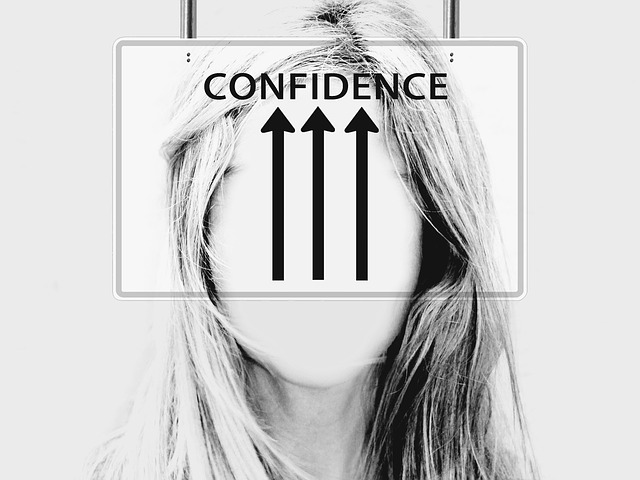Fostering Healthy Self-Esteem in Your Teen
Did you know that it is common for self-esteem to temporarily decline in adolescence? Or that low adolescent self-esteem is associated with problems including depression, eating disorders, drug and alcohol abuse, and even suicidality? In today’s blog entry, I’ll provide some background information on self-esteem in the developmental stage of adolescence, and offer some tips for parents on how to foster healthy adolescent self-esteem.
BACKGROUND
Although it may go without saying, adolescence tends to be a time of self-focus. Self-esteem is an issue that comes to heightened attention in adolescence, as adolescents tend to begin to evaluate themselves based on their outer appearance, feelings of insecurity, inner critic, success in relationships with friends, family, and romantic interests, and in comparison with peers. This has gotten more complicated over the years as we’ve added on smartphones and social media, with picture-focused apps like Instagram and Snapchat.
Developmentally, the time of adolescence is accompanied by intense physical and psychological changes. Physical maturation (puberty) can contribute to feelings of self-consciousness, increase comparison to and among peers, and increase anxiety about one’s changing body.
There are gender differences in terms of effects on self-esteem in adolescence. Research has shown that, as a general rule, cisgender female teens have poorer self-esteem than cisgender male teens. (For today’s blog, I am not able to get into the nuances for transgender teens or teens with gender dysphoria, so please forgive the possible generalizations). Cisgender female teens tend to view their bodies negatively due to the changing shape, structure, and distribution of body fat. Early puberty in females has been found to have the most negative body image effects when compared with others their age. Teen females may tend to face a lot of pressure to be thin, while cisgender teen males’ comparisons usually lie with wanting to be tall and muscular. Self-esteem across genders lies in perceived success/popularity when it comes to friends and romantic interests.
WHAT CAN PARENTS DO?
When teenagers are feeling insecure, they may verbalize negative self-statements such as, “I’m so stupid”, “I’m so ugly”, or “nobody likes me”. I often see parents disagreeing with their teen, trying to reassure them with an opposite statement. While that is completely natural, the possible with that approach is that it can just make the teen think that the parent is just trying to make them feel better. A more nuanced approach might be to ask questions to further explore their negative statements. For example, if your teen says, “I’m so stupid”, inquire: “What makes you think you’re stupid?”. Further engaging your teen in conversation could go like this: “hmmm…so, it sounds like what you’re saying is you’re not so great in math/ you’re having a hard time in math class”. “What subjects are you good in?” This approach will help teens learn to deconstruct their own negative beliefs, and find balance in the fact that good self-esteem does not mean we feel 100% about ourselves 100% of the time in 100% of all life areas.
As we’ve learned that the change in self-esteem in adolescence is attributed to body image, positive feelings can increase when a teen feels more comfortable ‘in their own skin’. Parents can target areas such as: cleanliness and good grooming, clothes according to current style, dressing appropriately for body type, and good posture. BUT recognize that you can provide the tools as the parent, but it’s generally up to the teen if and how they want to follow through. I advise against giving them too hard a time about it. For example, if your teen has issues with acne, it might help their self-esteem if they felt better about their skin; so, as the parent, you can take steps such as dermatology appointments, skincare products, and possibly acne medication, but the follow-through on these routines should lie with your teen. It’s helpful to not get into a habit of criticizing your teen’s appearance on a regular basis.
Regarding body image, Self-esteem may be increased if teens are coached that pubertal changes are normal and will happen to everyone, just at different times. You can normalize these changes, as well as the feelings, differences, and insecurities sometimes associated. Sometimes, sharing stories of what you may have struggled with as a teen can be helpful in normalizing these things too.
Monitoring and/or discussing the content of your teen’s consumption of media (social media, TV, Internet, magazines) is also suggested. So many negative messages about how someone is ‘supposed to’ look get imprinted in your teen’s mind, without the benefit of adult reasoning skills to know and think about things like filters, airbrushing, or plastic surgery (ahem, Kardashians). Adolescent friendly video clips targeting advertising, filters, and photoshop from Dove Beauty Campaign commercials you can see on YouTube at https://www.youtube.com/watch?v=iYhCn0jf46U and https://www.youtube.com/watch?v=9zKfF40jeCA and https://www.youtube.com/watch?v=-_I17cK1ltY
One of the most important things you can do for your teenager is to provide support, encouragement, and love to help show them they are important. Having a positive relationship with one’s parents during childhood and adolescence is SO important to fostering healthy self-esteem. Beyond the outer appearance focus that many teens have, as we’ve been addressing, my main bit of advice is to praise and compliment your teen on their inner qualities and abilities that have nothing to do with appearance. Intelligence, kindness, willingness to learn, helpfulness, team spirit, sensitivity, abilities, and so forth.
NEED MORE?/ Therapy with Sue:
Has your teen been struggling? If you are a California resident and would like to talk with me about how counseling for your teen, yourself, or a loved one, please contact me, I’d love to hear from you. I have a psychotherapy office in midtown Sacramento, an office in El Dorado Hills, or I can provide tele-health through a secured platform. I can be reached at https://hopeintherapy.com/contact/ or (916) 764-8360.

